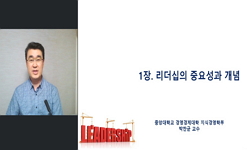The purpose of this study was to analyze and examine the relationship between leadership behavior and organizational culture, organizational commitment in sports team More specifically, this study was to investigate the influence of leadership behavio...
http://chineseinput.net/에서 pinyin(병음)방식으로 중국어를 변환할 수 있습니다.
변환된 중국어를 복사하여 사용하시면 됩니다.
- 中文 을 입력하시려면 zhongwen을 입력하시고 space를누르시면됩니다.
- 北京 을 입력하시려면 beijing을 입력하시고 space를 누르시면 됩니다.

스포츠사회학 : 스포츠 팀 지도자의 리더십 행동과 조직문화 및 조직몰입의 관계 = The Relationship between Leadership Behavior and Organizational Culture, Organizational Commitment in Sports Team
한글로보기https://www.riss.kr/link?id=A106545926
- 저자
- 발행기관
- 학술지명
- 권호사항
-
발행연도
2004
-
작성언어
-
- 주제어
-
KDC
600
-
등재정보
KCI우수등재
-
자료형태
학술저널
- 발행기관 URL
-
수록면
181-189(9쪽)
- 제공처
-
0
상세조회 -
0
다운로드
부가정보
다국어 초록 (Multilingual Abstract)
The purpose of this study was to analyze and examine the relationship between leadership behavior and organizational culture, organizational commitment in sports team More specifically, this study was to investigate the influence of leadership behavior on rational culture, developmental culture, consensual culture, and hierarchical culture of organizational culture, and loyalty, voluntary factors, and value-acceptance of organizational commitment. Subjects of this study were sampled 322 male athletes of football, volleyball, basketball, and baseball teams belong to universities in Seoul, Incheon, and Kyungki-do using the stratified cluster random sampling method. The data collected questionnaire designed for this study were consisted of responses to items constructed to represent each variable. The methods of statistics used to analyze the collected data were correlation analysis and multiple regression analysis. Based on the procedures and results of the study, the following conclusions were warranted : First, leadership behavior has effect on organizational culture. That is to say, training and instructing behavior increases the degree of rational culture, developmental culture, and consensual culture. Democratic behavior increases the degree of developmental culture, and social support behavior increases the degree of consensual culture. Autocratic behavior increases the degree of hierarchical culture but decreases the degree of consensual culture. Second, leadership behavior has effect on organizational commitment. That is to say, training and instructing behavior increases the degree of loyalty, voluntary factors, and value-acceptance and social support behavior increases the degree of voluntary factors and value-acceptance. Also positive feedback behavior increases the degree of loyalty and value-acceptance.
동일학술지(권/호) 다른 논문
-
스포츠산업,경영학 : 인터넷 스키동호회의 커뮤니티 특성이 커뮤니티 몰입과 성과에 미치는 영향
- 한국체육학회
- 김용만(YongManKim)
- 2004
- KCI우수등재
-
무용학 : 최초 인류 무용의 진화론적 해석을 통한 인류 무용에 대한 인식 고찰
- 한국체육학회
- 안미아(MiAAhn)
- 2004
- KCI우수등재
-
스포츠사회학 : 아동의 방과후 체육활동이 친사회적 행동에 미치는 영향
- 한국체육학회
- 김민섭(MinSupKim)
- 2004
- KCI우수등재
-
운동생리학 : 장기간의 간헐적인 저압,저산소 훈련이 심폐기능 및 혈중 산소운반능력에 미치는 영향
- 한국체육학회
- 선우섭(OoSubSun)
- 2004
- KCI우수등재




 KCI
KCI KISS
KISS






